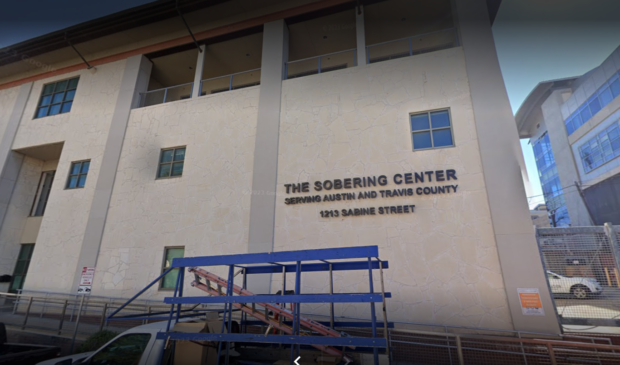Sobering center may seek expanded role
Wednesday, April 12, 2023 by
Jo Clifton The Austin-Travis County Sobering Center, currently in its fifth year of operations, has served more than 8,000 people, according to Jana Ortega, chair of the center’s board of directors. Ortega and Executive Director Laura Elmore addressed City Council at Tuesday’s work session, laying out its current work and possible expansion of its services.
The center provides an alternative to jail or the emergency room for people who are publicly intoxicated from alcohol or drugs, and individuals who come there do not pay for the center’s services.
It connects people with community resources, when appropriate, said Elmore. Typically, people are taken to the sobering center by the police or emergency services personnel. There are currently some other referral partners, such as hospitals. There are no walk-ups, but the University of Texas, SafePlace and Integral Care are among the entities that can seek treatment for people.
Austin and Travis County set up the sobering center through an interlocal agreement. Travis County provided the building – the old medical examiner’s office – which was renovated. The city provides funding for the center’s operations through Austin Public Health.
The sobering center will be asking City Council to approve a new interlocal agreement to continue funding for the center in September, Elmore said.
A small number of people who come to the sobering center who still need and want treatment for substance abuse are allowed to stay at the center until its staff can find a treatment program that will accept them, she explained. This started with one person, who was brought to the center 75 times within 135 days in 2020. After they convinced him to talk to the the center’s staff, Elmore said, he agreed to stay until they got him into treatment, which took five days because he did not have insurance. She described the incident as “a big business model change for us.”
Elmore noted that after the first individual was successfully transferred for treatment, the center started a pilot project to do the same for other individuals. That service is now covered by the contract the center has with Austin Public Health, she said. Alcohol is the No. 1 issue bringing people to the center, Elmore said, and men represent 75 percent of the people it serves. She noted that while people can die from withdrawal from alcohol, the same is not true of crack cocaine.
The sobering center is not set up and was not intended to be a treatment facility for alcoholism. However, Elmore said they would like to begin looking at that possibility. She said the center has room for more beds and could potentially provide treatment. However, such treatment does not come cheap and would require a lot of work.
Council Member Chito Vela, who serves as the Council representative on the sobering center board, expressed support for expanding the center’s services.
“We need to split the cost among other folks who are also responsible for this kind of treatment, Central Health and others as well,” Vela said. “But we have a great opportunity and I’d really like this Council to move forward in that direction.”
Interim City Manager Jesús Garza expressed wariness about the city getting involved in direct health care. He told Elmore he agreed with her that “this is really a health issue,” but he pointed out that the city of Austin divested its primary care assets to Central Health in 2004. “We lowered our tax rate so they can increase their tax rate to provide care for the poor and the vulnerable in this community. And so I simply would urge you to sit down and begin to work with Central Health to see what their proper role is in this.
“Certainly the city’s not going to abandon its role, but I think it’s appropriate for the city to say to them, ‘What role do you play?’ You talked about mental health. That’s a huge issue, not just for the people in the sobering center, but in the homeless camps that exist throughout the city,” Garza said. “Mental health is a huge issue and there’s a lot of people working on it in a lot of different venues. But I want to commend the work that you are doing and we are certainly willing to enter into those negotiations in good faith – and ask you to really begin to visit with (Central Health CEO) Mike Geeslin and others at Central Health about what their proper role is in this.”
Elmore responded, “I agree and I have met with Central Health several times,” but did not say how those conversations had gone.
The Austin Monitor’s work is made possible by donations from the community. Though our reporting covers donors from time to time, we are careful to keep business and editorial efforts separate while maintaining transparency. A complete list of donors is available here, and our code of ethics is explained here.
You're a community leader
And we’re honored you look to us for serious, in-depth news. You know a strong community needs local and dedicated watchdog reporting. We’re here for you and that won’t change. Now will you take the powerful next step and support our nonprofit news organization?



